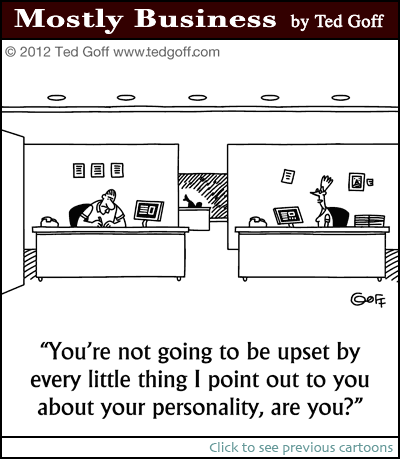 Our boss at The Wall Street Journal Europe, a Harvard alumnus, invited his sales crew to participate in a Harvard alumni diner in Brussels. Main attraction of the evening was a speech of the CEO of Inbev, Mr. Carlos Brito, between first and main course.
Our boss at The Wall Street Journal Europe, a Harvard alumnus, invited his sales crew to participate in a Harvard alumni diner in Brussels. Main attraction of the evening was a speech of the CEO of Inbev, Mr. Carlos Brito, between first and main course.Normally speeches of CEO’s are hard to swallow especially between courses, but the speech of Mr. Brito was an exception. A true motivational speaker, Mr Brito concentrated on management and leadership issues in his company.
Here are a few notes on what he said:
The culture of Inbev should be the unified culture of Ambev and Interbrew. Ambev had a well defined uniform-like culture, based on organic growth. Interbrew had a patch work culture, based on growth by acquisitions. The unified Inbev culture is what Brito calls the “DreamPeopleCulture”
Dream:
Inbev’s dream is to become the best, most profitable beer company in the world.
Inbev doesn't just have "a" dream, it has a "stretch-dream". The dream can only be achieved by over-achieving. Only then will Inbev grow from the biggest to the best. "A company with a dream" sounds a bit strange these days, admits Brito, but it doesn't mean that Inbev is an ‘adventurous’ company.
People:
The dream can only be achieved if Inbev has the best people. Brito believes that great companies are formed by great people and that great people attract more of the same. (Brito advises to read: “Good to Great” by Jim Collins)
Culture:
Inbev will adopt the highest standards of integrity in their business. The difference between a good company and a great company is that a great company doesn’t use short cuts. Inbev will never use short cuts even if it means losing a sale. It also means that one has to be patient from time to time.
A truly great company is defined by three elements:
1. Meritocracy: best will be treated best. The Inbev culture is a culture of hard work. The only reason why Inbev is bigger than others is not because Inbev has better people, it is only because the people at Inbev work harder. If the best are not treated best, they will not want to stay in the company. People = sustainable competitive advantage.
2. Candor: be honest
3. Informality: talented people don’t need formality. Brito explains by telling about his own office. Actually he doesn’t have an office. Uppermanagement sits around 1 very big table. It is noisy, it is electrifying, it is like working on a trading floor. Uppermanement seldom schedules meetings with each other; by sitting at 1 big table they have like 30 micro meetings a day by just talking to each other over the table.
About changing the company's culture:
If you want to impose a new culture to a workforce of 85.000 employees, you can’t just talk to all 85.000 employees individually. It is actually not required to talk to all 85.000 employees to start changing a culture. You only have to talk to 20 % of the employees. Because in a group of 100 people you have 20 leaders, 60 followers and 20 anarchists you have to get rid off, because they don’t agree with anything.
Management team:
At Inbev only 200 – 300 people make a real difference (out of 85.000). These 300 people are considered the super talents who will create the future of Inbev.
Brito likes people who are more entrepreneurial. They tend to take more care of the company and will try to come home with successes.
Brito's favorite quotes:
“If you are not at the table, you’ll be on the menu” (especially regarding alcohol legislation. Inbev wants to be involved in regulatory issues. If Inbev is not involved it will bear the consequences and it will find itself at the loosing side in the future.)
“We don’t need consensus, we need alignment”
“We are not smarter, we work harder.”
What is a leader ?
A leader:
- must deliver results
- with the team
- in the right way
Leaders must put pressure in the system, like in sports. Ever seen an athlete relaxed ? No, athletes are focused, they are under pressure.
CSR: Corporate Social Responsibility:
4 elements:
1. A company must be profitable to do good for employees
2. A company must obey the law
3. A company must act ethical, do what is right
4. A company needs a fair amount of voluntarism, involve in community
Balance between life and work:
In the old days: you had 2 lives (1 at work and 1 at home)
Today: you have 1 life. Due to emerging technologies employees are living and working in a mix of work + home.
Targets:
Brito works with 3 year targets: Inbev will focus on 3 elements the coming 3 years:
- focus on people
- focus on regulatory issues
- focues on commodities
-------------------------
Carlos Brito cv
Born in 1960 a Brazilian citizen - joined Brahma in 1989. His first role was Financial Analyst followed by 2 years as a plant manager. From 1992 to 1996 he was responsible for the Soft Drink division of AmBev. From 1997 to 2001 he was Head of beer sales organization in Brazil followed by 2 years he was in charge of Operations (supply Chain and People functions) and was appointed AmBev's CEO in 2003. After the combination Carlos was promoted to Zone President for North America with Headquarters in Toronto- Canada in January 2005. Brito holds a degree in Mechanical Engineering from the Federal University of Rio de Janeiro and an MBA from Stanford University. He has extensive experience in the beer industry throughout Northern, Central and South America.





















